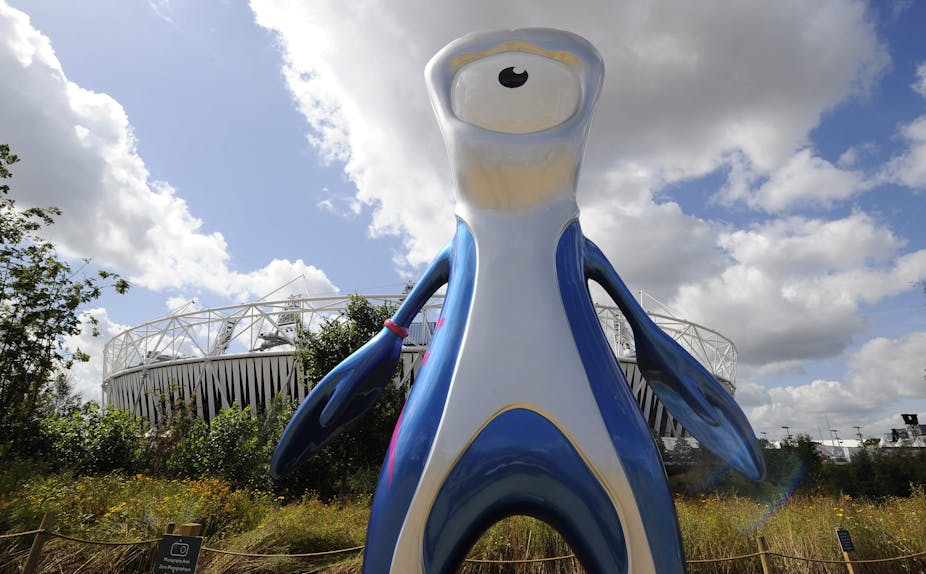In the 64 years since the Paralympics was born, the relationship between this event and the Olympics has grown and evolved. And now, with both events returning to London in 2012, the Olympics and Paralympics are better linked than ever before.
But should they be?
History of the Paralympics
The Paralympic Games were founded (albeit with a different name) after World War II when English war veterans returned home and found themselves under the care of Dr. Ludwig Guttmann at the Stoke Mandeville Hospital.
Life expectancies for patients with spinal injuries had improved dramatically in the years leading up to that point – survivors who had previously only lived for a few years after their injury were now living to the same age as their able-bodied peers.
Perhaps because of this, a new interest in rehabilitation was born and Guttmann decided he would focus on sport. In 1948, 13 patients participated in an archery competition referred to as the World Wheelchair and Amputee Games. They were held the same day as the Olympic Games opening ceremony in London.
In the lead-up to the 1960 Rome Olympics, Dr Guttmann contacted the International Olympic Committee (IOC), requesting that the Paralympics be held in the same city as the able-bodied Games. The IOC consented and while the Olympics governing body had no role in hosting the event, the first official Paralympic Games was born.
Together, at last
In Seoul (1988) the practice of hosting the Paralympic Games after the Olympic Games, using many of the same facilities, was initiated. But it wasn’t until 2000 that an official agreement was reached between the IOC and the International Paralympic Committee.
According to this agreement, a city bidding for the Olympics had to agree to host the Paralympics as well. The timing of this agreement meant Beijing was the first Summer Games to be required to host both Games.
(The Winter Paralympic Games began in 1976, adopting a similar pattern to that seen with Summer Games. Albertville, France was the first city to host both the Winter Olympics and Paralympics in the same year – 1992).
In the past decade or so, the hosting of the Games has evolved with host cities typically having one host organising committee to organise both Games. The Vancouver 2010 Winter Games saw a number of changes including:
“Paralympic” being included in the official name of the host organising committee (e.g. LOCOG: London Organising Committee of the Olympic and Paralympic Games)
the creation of a joint marketing agreement with the host nation’s Paralympic committee
the addition of a member from the National Paralympic Committee to the host committee’s board of directors
the creation of a separate countdown clock
the flying of both Olympic and Paralympic flags side by side.
Two years later further changes have taken place. In London the logos for the Olympic and Paralympic Games are essentially the same with the only difference being the five rings of the Olympics and the three agetos of the Paralympics.
A continuing connection
The relationship between Games will continue into the future thanks to a co-operation agreement signed by the IOC and IPC in the lead-up to the Paralympics. This agreement will ensure that, until 2020, the Paralympic Games will be held in the same city as the Olympic Games.
It’s an agreement that extends the practice of “one bid, one city” to the PyeongChang 2018 Winter Games and 2020 Summer Games, which will be held in either Istanbul, Madrid or Tokyo.
An additional element to this agreement is that the IPC may be able to participate in IOC programs such as Olympic Solidarity, International Federation development and the Games Transfer of Knowledge program. Finally, the new agreement includes an increase in funding from the IOC to the IPC.
The Paralympics have thus evolved dramatically in a relatively short period of time. The question is: what will happen next?
Calls for the Games to be even more integrated are being proposed and the IPC President Sir Phillip Craven has publicly not ruled anything out post-2020. But at this stage it’s unclear who would benefit from a greater integration of the two Games.
When the Games unite, who wins?
Some argue the Olympics and Paralympics could be hosted as one festival with all athletes referred to as Olympians. A human rights and social justice argument would suggest people with disabilities shouldn’t be excluded from referring to themselves as Olympians – just as those of different genders, sexual orientation or ethnicity aren’t.
But why hasn’t the opposite occurred? Is it an “able-ist” perspective that purports the minority wants to become part of the majority? What is wrong with being proud of being called a Paralympian?
From a practical perspective there are concerns that a further merger of the two Games would lead to a decrease in competitive opportunities for athletes with a disability within an already complicated, competitive and busy sport schedule.
Would Paralympic athletes be more or less recognised by media if events were held at the same time as their able-bodied peers?
A final question is whether the Paralympics should instead make a move towards greater autonomy. Perhaps there’s an opportunity for the world’s second-largest multi-sport event to solicit bids from cities that cannot or choose not to bid for the Olympic Games. Cities wanting to capitalise on unique legacies of hosting Paralympic Games may see this as worthwhile.
With the London 2012 Paralympic Games selling roughly 2.5m tickets, this may be a tipping point – the point at which cities see the economic “Handicapitalism” benefits of hosting a Paralympic Games.
The Paralympic movement is still in its relative infancy and may only now be realising its latent power and value. Does the Paralympic movement really need the Olympic Games movement?
Time will tell.

